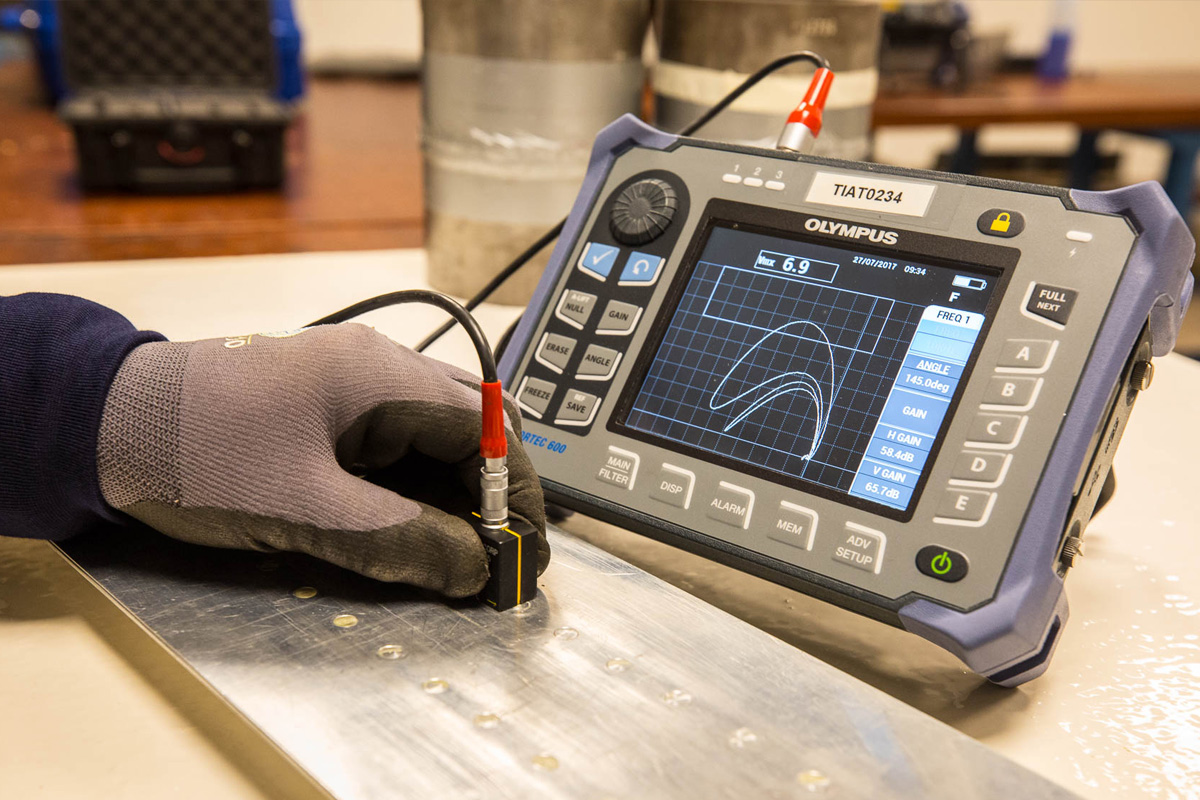Eddy Current Testing (ECT) is a non-destructive testing technique used to detect surface and near-surface flaws in conductive materials. It works on the principle of electromagnetic induction, where a coil is used to generate a fluctuating magnetic field near the surface of the material being tested.
When the magnetic field interacts with the material, eddy currents are induced in the material. The presence of any defects or changes in the material’s conductivity will cause disruptions in these eddy currents, which can be detected by measuring changes in the electromagnetic field.
ECT is commonly used for inspecting materials such as metals, alloys, and composites for cracks, corrosion, and other defects. It is a fast and sensitive method that can provide detailed information about the condition of a material without damaging it. Eddy Current Testing is often used in industries such as aerospace, automotive, and manufacturing for quality control and preventative maintenance purposes.

